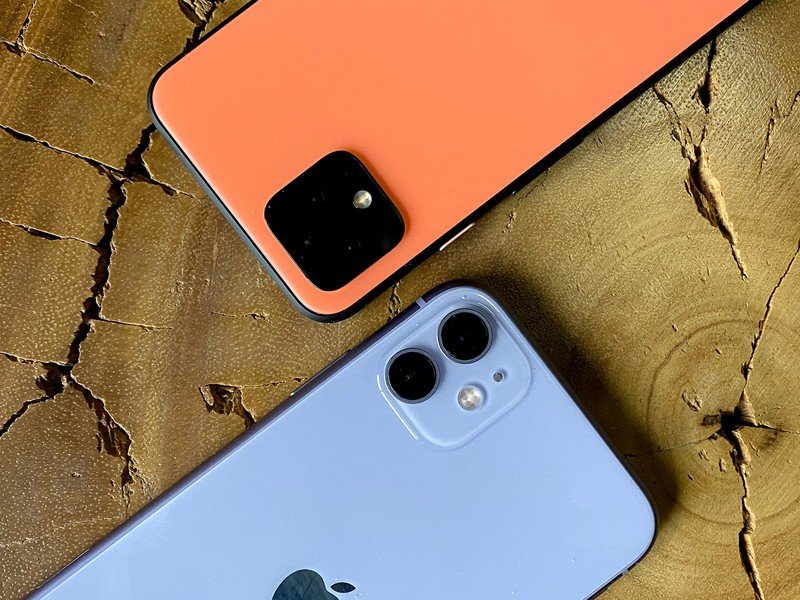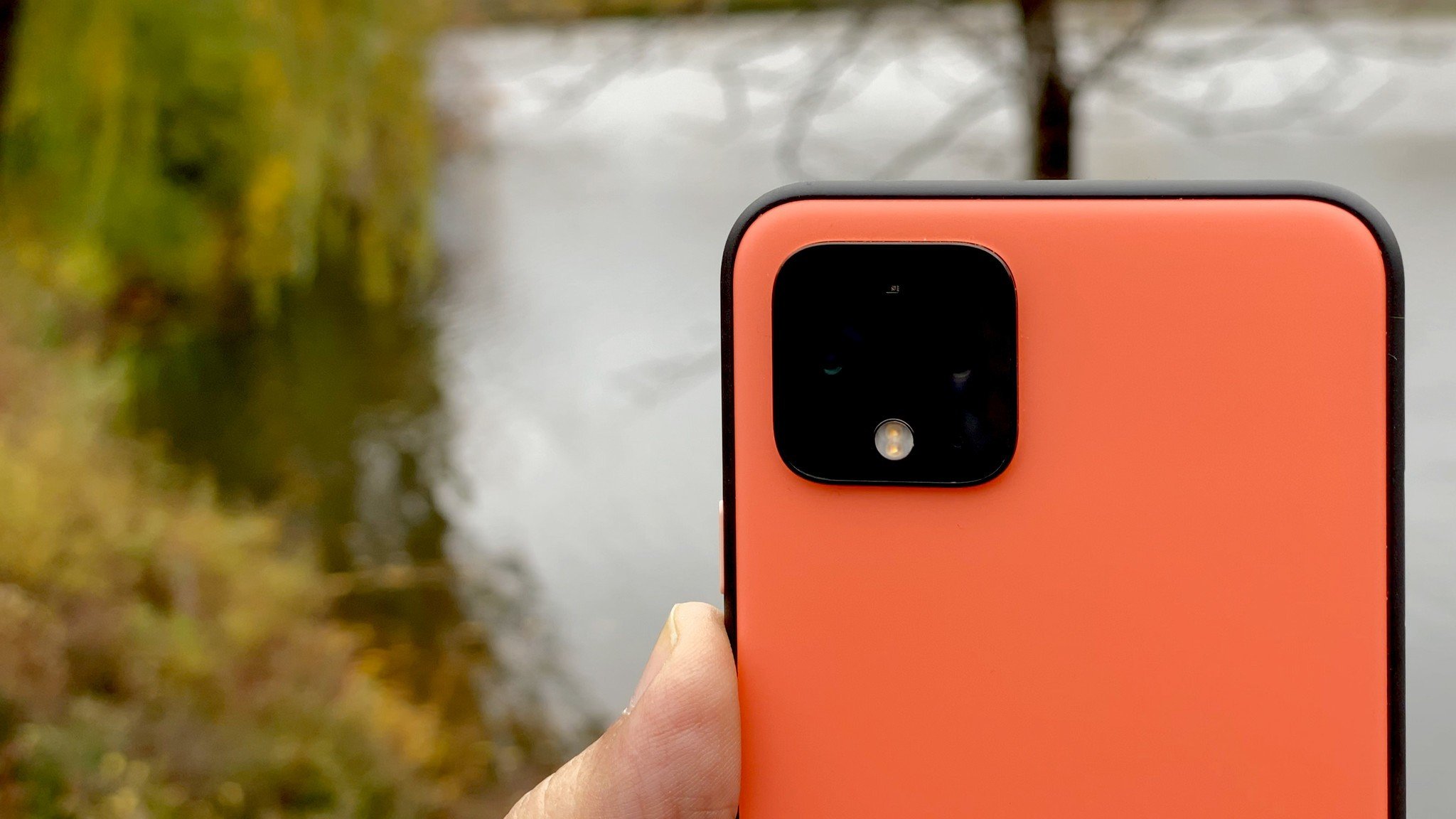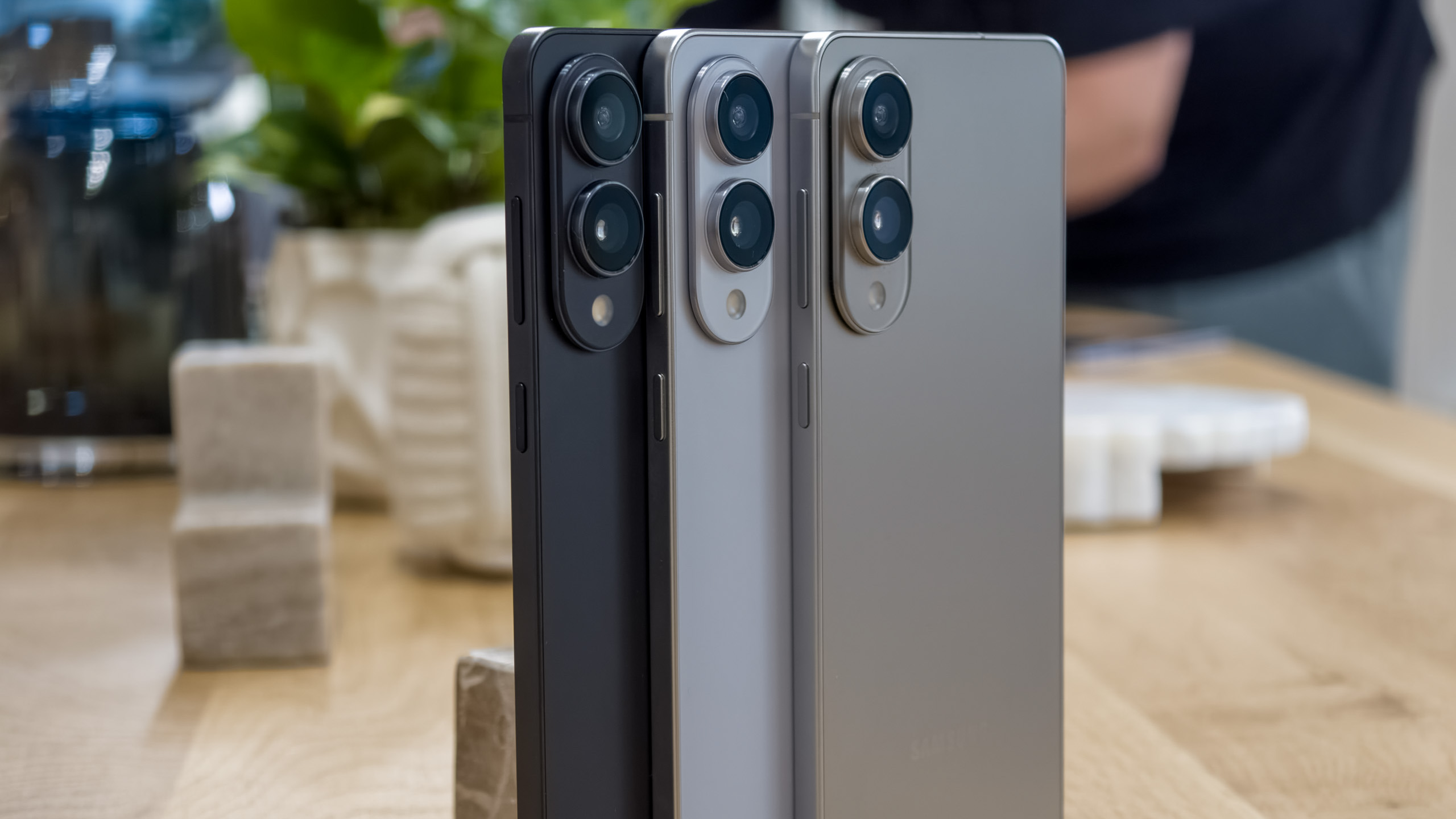I've been using Google's Pixel 4 phone for almost a month now. I mean, really using it. With my SIM card in it and everything. Taking photos. Making calls. Playing Pokemon Go. Yes, still.
This isn't my first Google phone. I had the Nexus One, the Nexus 4, and the Pixels 1 and 2. I usually get the XL but since I've switched back to the smaller iPhone, I decided to go with the smaller Pixel as well.
Now, up-front, I consider Google to be the most important company in the world. I love Apple's products and their overall philosophy currently best aligns with mine. I think Amazon is transformative in the best and worst ways. Facebook is… a disaster that still brings the world together like nothing else. But, Google, literally, is trying to build the Star Trek computer. The future of humanity. And there is no amount of scrutiny that's enough, no slack cut that's not detrimental to what that future will be for all of us. Ethically and technologically.
Apple makes phones. Phones that are increasingly tied to entertainment services, sure. But Google's phones are services. The atoms themselves are spectacularly unimpressive without the algorithms that bring them to life… and harvest unprecedented amounts of personal, private data while doing it. All in service of financing and building that Star Trek computer.
So, if I seem tough on Google and their products like the Pixel. It's because I have to be. We all have to be.
Pixel 4: The Good 📷
I like the new industrial design language Google is using with the Pixel 4. A lot. Google made a few missteps with the OG Pixel. They pushed it, hard, as the first phone really designed by Google, even when it was clearly HTC ID. It's not that I don't like HTC design. I love it. From the Treo Pro to the Nexus One to later devices. And I clearly like Apple's iPhone design languages. It's just that neither of those things afforded the Pixel much if any of its own identity.

Worse, when it came to hardware design, Google seemed all loose opinions strongly held. Every year, they'd tell use what they didn't need — camera bumps, optical image stabilization, two cameras, only to spin on a dime and add exactly those things on the very next iteration.
Get the latest news from Android Central, your trusted companion in the world of Android
Last year we got foreheads and the mother of all notches, also chins, because they just had to have a front-facing speaker on the bottom. This year, no more notch. And that speaker has moved.
One selfie camera. Two selfie cameras. Back to one selfie camera. It would seem whimsical if it didn't seem to utterly based on whim.
It would seem whimsical if it didn't seem to utterly based on whim.
There's no way to know for sure if this year really will be different, not until we see what Google does next year. I'm an optimist but I'm only cautiously pessimistic about them finally settling into something of their own identity.
Still, if they settle into the Pixel 4, at least for a while, I'll be happy enough.
I got the orange version because orange. Like with the iPhone 11, I wish colors weren't so pastel this year, but I don't get to be the fashion decider.
I like the camera bump as well. The black color makes it stand out more but the lenses less, so compared to the iPhone 11, it's a wash for me. I'm perfectly happy with camera function winning out over flat back form on both.
It's weird that the black is glossy but the white and orange are not. Like Marques says, matte black all the things. And the matte is a huge improvement over last years, which seemed a little silly-putty in how it would react to finger pressure. This year, no problems, no marks, no prints.
I don't even mind the giant forehead bezel. Yes, it's visually unbalanced with the chin. Yes, it undoes all the benefits higher screen-to-surface ratio phones have given smaller devices over the last couple of years. And, sure, it's all shades of 2016.
But, until we can put all the sensors under all the displays, I'm just not going to nitpick foreheads or notches or holes, because they're all still better than mechanical choochers what pop or spin cameras up and down.
And, overall, it just feels to me far more like a singular object than any Pixel has before.
It feels far more like a singular object than any Pixel has before.
The cameras are still terrific of course. Cameras plural on the back this year. They're very different than what the likes of Samsung and Huawei are doing with big glass and… kinda goofy algorithms. And what Apple is doing with really good glass and really good algorithms. Google is sticking to ok glass combined with what are still the best algorithms in the world, and using them to produce what are properly considered some of the best photos from any phone.
I still hope they'd improve the physical cameras as well, but they are at least improving the silicon. The new live preview for HDR+ and the ability to tune both high and low exposure is a really cool example of something computational photography makes possible that traditional simply can't.
I just wish they had the performance to do the same thing in every other computational mode, including Portrait Mode. Having arguably the best segmentation masking in the business, and now actual depth data from the second camera, doesn't make the frustration of having to take photos over and over again, and wait for them to resolve, just to make sure the algo isn't wrecking ears or glasses.
Because of the hardware limits, the way Google handles computational photography is also still a double-edged sword. The Pixel 4 doesn't seem to offer instant shutter the way the iPhone XS and 11 do. So, when shooting side-by-side, any processor-intensive modes would produce delayed images. For example, when trying to take a Portrait Mode of one of my god kids, the iPhone 11 would latch onto the shot immediately. The Pixel 4, a few instants later, often while he was already moving away.
Even more fascinating, in one shot my friend's brother walked up and stood next to her in the middle of a night shot. The iPhone 11, again, grabbed the shot immediately and resolved just her. The Pixel 4, a second or more later, grabbing both of them.
Pixel 4 photos are also always Pixel 4 photos. Cool. Crisp. Calculated. No matter what the conditions, Google can and will almost always give you what looks like a great Pixel 4 photo. But it does so by normalizing all photos to that look. The iPhone, by contrast, works more like a traditional camera. Sometimes it produces better results. Sometimes worse. But it's solving for the conditions at the time, not the end result.
I think that's why some people love the Pixel camera so much. It's almost absolutely, reliably, rock-solid-ly consistent. But, I think it's also the reason you still see so many professional photographers still using iPhones. Beyond just the huge range of phenomenal camera apps available on iOS, for good or ill, the Pixel still feels more like science than art.
Not having an ultra-wide angle lens isn't the end of the world for me. I lived without one on the iPhone until this year, after all. That said, I really like having one now, and pretty much every other flagship phone has one. So, to me, this is just another example of, for all the ways Google is ahead computationally, they're still behind photographically. It's the "we don't need"… oh, crap, it turns out we do… mentality that keeps my caution so pessimistic.
The quality of images the Pixel is able to put out at 5x makes it legit hard to believe they're not optical.
Super Zoom, though, is utterly amazing. The quality of images the Pixel is able to put out at 5x makes it legit hard to believe they're not optical. Again, better optics would lead to even better computational. But for right now, it's just something I really want to see Apple even begin to catch up with.
Google has also seemingly fixed last year's problem where the camera app would sometimes take forever to launch and then promptly fail to save shots and frames. Which, yeah, made the world's most consistent camera phone not even work consistently as a camera. As far as I can tell, I've dropped precisely zero shots or frames on the Pixel 4. Hurrah.
I also really like how Face Unlock can blast you straight through the lock screen and into the phone without so much as a Face ID swipe. I did find a negative — with Face ID, if the phone unlocks unintentionally, like while you're putting it down, the lack of a swipe just means it'll lock and sleep again in a few moments. Because Face Unlock doesn't require the swipe, if the phone unlocks unintentionally, and you don't notice, and it opens on an app on that keeps the phone awake, like Pokemon Go, it can drain the tiny, tiny battery on the Pixel 4 real quick.
So, I like I said in my head-to-head video, different people and workflows will favor different options. That's why it's having the option that's important. I hope Apple adds it asap.
Different people and workflows will favor different options. That's why having options is important
And, yeah, not having the option to require attention for unlock is still absolutely inexcusable from a defense-in-depth point of view. So, I hope Google adds that, or adds that back, asap as well. Much like if you need the suit to be Spiderman, you don't deserve the suit, If you can't be fast without disabling-defense-in-depth, you don't deserve to be fast.
Google's current workaround, telling people to enable Lockdown mode, is ok. But, because it doesn't have the power and volume buttons on either side, like the iPhone, you can't just squeeze them both to enable it, like on the iPhone. You have to first spelunk down the settings to turn the feature on, then hold down power and select it from the options. It makes holding down to reboot a faster, less wicked obvious workaround, but not a better one.
Also, just to get it out of the way, Motion Sense is like 3D Touch to me but if Apple had released it two years earlier with a tenth the ubiquity and utility throughout the system. Maybe putting it in early will help improve it faster. At best, though, I don't think the current version is something most people will use most of the time, even if they could. Hopefully, Google has much better and brighter plans for it in the future.
Speaking of which, the 90Hz display is glorious. Everything just looks so incredibly ultra-extra smooth. It can have a bit of a soap-opera, motion smoothing look, if you're not used to high frame rate. But, on the Pixel 4, it can also leave you in a heartbeat and dump you back down to 60Hz the moment the app or even the brightness level changes, on device or ambient.
You can go into developer mode and force 90Hz to remain on if you really want to, but that it's not on by default is a hint and a half that it's just really not meant for primetime yet. That Google has to so aggressively manage it, whether it's for battery life or pulse width modulation, which they seem to be leaning on heavily with this display, the end result is islands of 90Hz delight amid a sea of 60Hz normalcy.
Pixel 4 only manages islands of 90Hz delight amid a sea of 60Hz normalcy.
It's such a huge contrast to how well the iPad Pro manages it with ProMotion, even considering the differences in display technology between LCD and OLED, that as much as I love it when it kicks in, I think it would have been better for Google not to do it yet if they couldn't do it consistently, and just focused on making an amazing 60Hz experience instead. You know, one that wasn't so far behind Apple and Samsung in sustained brightness levels.
On the other hand, the Pixel's Voice Recorder with transcription is pure machine-learned magic. There's no other way to describe it. Google's doing a lot more neural processing on device now. Unlike Apple, I think they're doing it for performance, not for privacy, but the results are still beyond terrific. It's something else I'd love to have on the iPhone as soon as possible.
Call and data quality is great. I get roughly the same Rogers LTE upload and download speeds on the Pixel 4 that I get on the iPhone 11. Neither, of course, supports 5G yet because 5G isn't a thing yet. I haven't read as many breathless complaints about the lack of 5G on the Pixel as I have the iPhone, but in either case, the overwhelming majority of people can't use 5G yet and anyone who wants to use it next year or the year after that will want to use it with next year's modem technology, or the year's after that.
OK, so, if it sounds like what I love about the Pixel 4 is super conditional and full of caveats, that's because the Pixel 4 is super conditional and full of caveats…
And that brings me to…
Pixel 4: The Bad 🔋
As much as I can go back and forth about everything else, weigh pros and cons, argue the subjective and objective, there's just no getting around the battery on the Pixel 4.

I mentioned Pokemon Go in the beginning and as anyone who's followed my iPhone reviews knows, that's what I use to stress test batteries. Constant GPS, screen brightness, data, interaction — it basically fires everything all the time. So, when I get a new phone, I take it out for a Pokemon Go event and see how it does.
And…. The Pixel 4 couldn't even finish an event. It was tapped out just before the four-hour mark. The iPhone 11, by contrast, made it just past 5:30 hours, as did the 11 Pro. Travel tests, where the battery gets hit by poor airport reception, roaming, and much heavier than typical use, likewise killed the Pixel 4 by lunch.
The Pixel 4 battery couldn't even finish a single Pokemon Go event.
Like I was saying in my iPhone reviews a few years ago, people don't just surf the web and check emails anymore. Media heavy social networks, location-based and logistical services, games and other entertainment, it all hits phones like a freight train.
You can talk about AI-based battery optimization all you want. The iPhone has had it at the silicon level for years. But you can't optimize for the constant-use workflows many of us are constantly using these days. You just can't. You can only engineer for it when you're designing the phone to begin with.
And, despite having and knowing all the usage data for all the Pixel phones — probably all Google Play Android phones — Google simply didn't do that. I'm sure there were a lot of in-the-moment decisions that led to it, from a desire to keep weight down to the need to fit things like the Soli MotionSense system into that sometimes 90Hz display. All design is compromise and trade-off, and far be it for me to YouTube quarterback any team actually putting out actual phones.
But this just seems like disparate geeky technology-driven decision making, rather than holistic, end-product, customer-driven, decision making, all the way down.
YouTube can play 4K60 but the Pixel can't shoot it, and the Pixel can shoot 4K in HEVC but YouTube refuses to play it.
I'll get back to that in a minute.
I also want to touch on Pixel 4 video recording. Like I said in my previous video, that YouTube can play 4K60 but the Pixel can't shoot it, and the Pixel can shoot 4K in HEVC but YouTube refuses to play it, it's... perplexing.
But Google not enabling 4K60 on the Pixel because its current silicon can't handle Google's imaging algorithms, things like stabilization and extended dynamic range, and their being unwilling to compromise on that, just points how glaring their compromises on things like 90Hz display, Face Unlock security, and battery life really are. And, again, how disjointed the Pixel 4 is as an overall product.
So, finally…
Pixel 4: The Conclusion 🎭
Google used to be ruled by product managers the way Apple is by designers, which is why it felt like stuff was released and killed almost willy-nilly. Because it was. Then, direction started coming down from on-high: Make us an iPhone.
Maybe that was to see if Google could grab some of those tasty, tasty hardware profits from Apple. More likely, it was to try and get Google employees off iPhones and onto Android phones so they'd dogfood their own operating system some more. Same reason they started making high-end PixelBooks for employees used to using MacBook Pros and even tried Pixel tablets to lure employees off iPads.
To avoid pissing off partners, and because Google is just Google, the hardware team couldn't really communicate or integrate with the Android team the way Apple's hardware and software engineering teams could. At least at first. Which led to a bunch of wonk.
Still, the Pixel still managed to really nail the overall software experience. They let Android be Android, even with a fresh coat of Google paint. But the hardware, well, they never really took the time or went to the expense of nailing the hardware.
The desire to dogfood notches last year and 90Hz panels this year, and test Soli chips early, while not losing too much money by including a third, ultra-wide camera or more than 128 GB of storage, turns the Pixel into literally a device divided against itself.
We got some bad screens and stingy RAM, sure, but we mostly just got commodity parts made exceptional by algorithms, instead of an exceptional phone that was more than even the sum of exceptional parts force-multiplied by its algorithms.
Now, finally, it's clear that, even at flagship prices, Google doesn't sell nearly enough Pixels to be profitable at it, like Apple, maybe Samsung or Huawei, levels. And the desire to dogfood things like notches last year and 90Hz panels this year, and test things early like Soli chips, while trying not to lose too much money by including things like a third, ultra-wide camera and 128 GB storage limits, turns the Pixel into literally a device divided against itself.
Something that can't really satisfy internal users because it also has to appeal to customers, and can't truly prioritize customers because it's festooned with internal priorities.
So, the Pixel 4 ends up feeling like it's trapped between multiple quantum states. A phone with some jaw-dropping technologies that has to service too many agendas, and lacks the singular focus or vision to be what everyone really wants it to be. More than the sum of those technologies. To be truly great.
So, unlike most Nexus and nearly every Pixel past, like my friend and colleague, Daniel Bader, I can't really recommend the Pixel 4. If you really want a Google phone this year, the Pixel 4 XL will at least mitigate the battery issues. Otherwise, OnePlus and Samsung have both had really good years and might be worth checking out instead.



